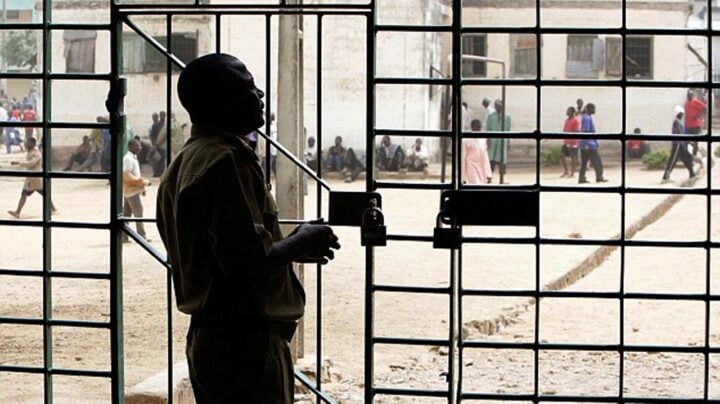Why some refuse to evacuate during wildfires - and how understanding those choices can improve disaster plans
As out-of-control wildfires threaten communities across central and Western Canada, thousands of people have been forced out of their homes across Manitoba, Saskatchewan and Alberta — but even in the face of mandatory evacuation orders and potential danger, some people may not go willingly, or at all.
It's a story that's played out in Pimicikamak Cree Nation in northern Manitoba, where Chief David Monias recently voiced frustration with residents who refused to leave, despite a May 28 mandatory evacuation order spurred by a fire near the community. Monias initially said he planned to use police to round those people up and force them out.
But later in the week, he said authorities had been able to convince holdouts in Pimicikamak — including an elderly man who didn't believe he'd survive if he left the community, and a family with young kids who thought they'd have the option to drive out later, Monias said — to leave voluntarily.
Some underestimated the size of the fire. Others feared leaving their community for a bigger city, where they would "basically be homeless" and worried about how they would be treated. And for some, Monias said, being forced out of their community may have reminded them of past traumas inflicted on First Nations people, like the Sixties Scoop and residential schools.
"Everybody wants to stay home. And I understand that," Monias said. "It took a while for people to catch on [that] this is real, and that it could endanger their lives."
As of late last week, more than 18,000 wildfire evacuees had registered with the Canadian Red Cross in Manitoba, while officials in Saskatchewan estimated 15,000 were forced from their homes in that province.
While it may seem counterintuitive to stay in an active wildfire zone when evacuation has been ordered, experts say that kind of refusal isn't unheard of in disasters.
"There are often rational thoughts behind the reasons why persons do not evacuate, and those decisions go beyond mere recklessness or decisions not to obey orders," said Jack Rozdilsky, a professor of disaster and emergency management at York University in Toronto.
Experts say if authorities take the time to understand why people choose to potentially put themselves in harm's way instead of evacuating, it could also help improve future evacuation planning and policy.
Sometimes, those reasons are strictly practical — for example, not having a car to get out of their homes, or facing roads to safety that are congested and don't seem safe themselves, said Tara McGee, a professor at the University of Alberta whose research has included wildfire evacuations.
People may also be reluctant to leave pets uncared for, or leave their homes unprotected from fire — especially if they have firefighting experience — and the perceived risk of break-ins.
For people from small, remote communities who have never left before, or those who have had traumatic experiences with previous evacuations, the prospect of leaving can also be stressful enough that they decide against it, McGee said.
The cost of evacuation and barriers for people with disabilities, especially if in-home care is needed, can also make people hesitant to leave their homes for an uncertain immediate future, Rozdilsky said.
And if people didn't get enough notice to pack adequately before evacuating, or don't get enough timely information about what's happening on the ground while they're away from home, they may go back even before it's safe, McGee said.
But reasons for not evacuating can also have more to do with how serious people believe the risk is — and the disconnect between the danger seen by authorities — who understand how quickly wildfire can spread in dry, windy conditions — and residents who think the danger has been overblown and take a "wait-and-see" approach, believing others will protect them even in extreme circumstances.
"They don't necessarily see the danger in front of them," Rozdilsky said.
"Wildfires are unique and dynamic situations, and there have been circumstances right now in Manitoba where mandatory evacuation orders are issued for locales and jurisdictions where the fire is not necessarily approaching one's front yard."
That can be especially true for people who have survived previous disasters without evacuating, and feel what Rozdilsky calls a "tragic overconfidence" they can do it again.
More deep-seated issues can also play a role, like for people whose families have lived on the land they're on for generations and feel a responsibility to care for it, or those who have trust issues with authority — especially in cases where there have been past false alarms, said Jeffrey Pellegrino, a professor of emergency management and homeland security in the school of disaster science and emergency services at the University of Akron in Ohio.
Depending on the wording of a particular evacuation order, authorities may technically be allowed to force out or fine people who refuse to leave during an emergency, Rozdilsky said — but given the amount of work and the lack of resources typically present in those situations, experts say they'd hesitate to take such a drastic step.
"We're always going to be in a bad position if we force people to do something," Pellegrino said. "We need their assistance, because in a disaster we have limited resources, and we ultimately put people at risk to go in and … move people by force."
Instead, Rozdilsky said authorities may take a different approach, like going door-to-door to take one last crack at convincing the holdouts of the danger they face, before asking them to take steps like filling out a next-of-kin form, providing dental records or writing their social insurance number in permanent marker on their arm, to make identifying their body easier if they die.
"Those are actions which illustrate the seriousness of the risk and serve a purpose — often to scare people who have refused to evacuate, to try to make the risk real," Rozdilsky said.
"These are extreme examples, but at the same time, with the extent and magnitude of these out-of-control wildfires, authorities sometimes are forced to act, to do everything possible to convince people to remove themselves."
And if people still want to stay back despite the risk to their safety, Rozdilsky said local leaders may ask them to at least take steps to help the firefighting effort, like clearing brush from areas around their home and setting up sprinklers.
While refusals to evacuate can create an immediate issue for local authorities, they can also create an opportunity to improve emergency response plans — if officials take time to understand the reasons behind residents' decisions.
"To be able to work with people, you have to understand their context," the U.S.-based Pellegrino said, highlighting the example of Hurricane Katrina in 2005, when some people didn't evacuate because their pets weren't allowed in evacuation centres.

"Because of that incident so many years ago now … we understand that the value that people put into their pets really, you know, impacts their judgment.
"Those pets often bring a point of solace and a point of comfort for people, and so to be able to have them in a safe space, provide food, whatever areas pets need — we're trying to make that happen so that we are sensitive to what people need and value, and ultimately build that trust in us so that we can keep everybody safe."
During an emergency like a wildfire, clear and widespread communication that's tailored to give groups the support and information they need in a way that will resonate with them — whether it's people with limited English proficiency or those with disabilities — is key to getting people on board with evacuation, Pellegrino said.
But even better is engaging those communities before an emergency like a wildfire strikes — whether that means doing disaster drills, encouraging families to have an evacuation plan in their back pocket that accounts for things like medications and pets, or reminding people to fireproof their homes as much as they can ahead of time, so they feel ready to leave when the time comes.

This man evacuated his family of eight from the Manitoba wildfires | Hanomansing Tonight
"Emergency managers need to prepare these types of things before, in terms of building relationships and having the resources to put out those messages quickly," Pellegrino said.
"That's ultimately going to build trust and more community engagement."
Are you an evacuee who needs assistance? Contact Manitoba 211 by calling 211 from anywhere in Manitoba or email [email protected].










